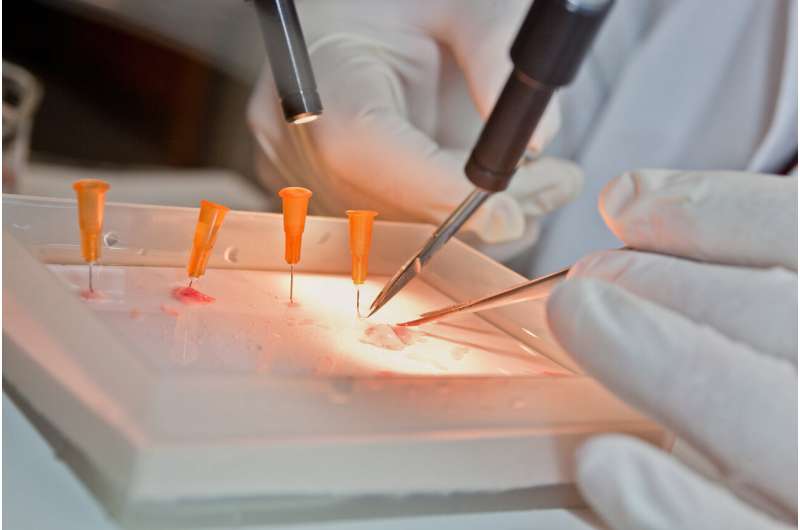Researchers identify drugs that could halt preterm labor

As the number of preterm births in the U.S. continues to rise, there is an increasing need for new approaches to prevent preterm labor from progressing to preterm birth. Researchers have discovered a common molecular pathway in women who experience preterm labor and are using this insight to develop new treatments for woman who experience early labor.
"We not only identified an abnormality in the uterus of women who experience preterm labor but also found that FDA-approved drugs historically used to treat other disorders can be used to target this problematic pathway and are extremely effective at halting contractions," said Scott Barnett, Ph.D., University of Nevada, Reno School of Medicine.
Dr. Barnett, a postdoctoral fellow in Iain Buxton's laboratory, was scheduled to present this research at the American Society for Pharmacology and Experimental Therapeutics annual meeting in San Diego this month. Though the meeting, to be held in conjunction with the 2020 Experimental Biology conference, was canceled in response to the COVID-19 outbreak, the research team's abstract was published in this month's issue of The FASEB Journal.
About 10 percent of all births in the U.S. occur preterm, defined as fewer than 37 weeks gestational age. Children born at 24 weeks of gestation have only a 50% chance of survival, and those who do survive will most likely have health complications. Today, there are no FDA-approved drugs to delay birth beyond 48-hours in women who experience preterm labor that is not induced.
"Most drugs used to treat preterm labor were not designed to specifically address the abnormalities in the uterus that cause preterm labor but rather to treat other muscle disorders," said Dr. Barnett. "A way to delay that birth, even by a matter of days or weeks, will significantly improve the outcome of the child."
The researchers identified four candidate drugs that target the problematic molecular pathway and tested them on small pieces of uterine muscle donated by women who had a cesarean section. These tissue samples were placed in a solution simulating conditions in the body and then stimulated to contract with oxytocin, a natural hormone that elicits contractions in pregnant women. Applying the candidate drugs to the bath solution allowed the researchers to observe how the drugs affected the contractions.
Although all four drugs decreased contractions, contractions were almost completely halted with combined administration of the FDA-approved beta blocker nebivolol and the small molecule N6022, which underwent clinical trials for the treatment of asthma. N6022 inhibits S-nitrosoglutathione (GSNO) reductase, a key regulator of smooth muscle tone and inflammation.
Dr. Barnett and his colleagues plan to further test the candidate drugs in an animal model of preterm labor to determine whether they affect birth timing and the health of the offspring. The researchers are also continuing to develop new compounds that target the pathway they identified.

















